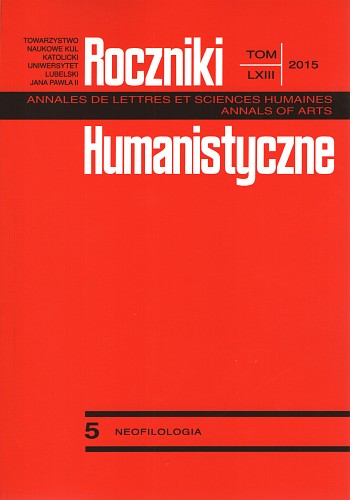Narrative as Expiative Fantasy in Ian McEwan’s Atonement
Narrative as Expiative Fantasy in Ian McEwan’s Atonement
Author(s): Tomasz DobrogoszczSubject(s): Other Language Literature
Published by: Towarzystwo Naukowe KUL & Katolicki Uniwersytet Lubelski Jana Pawła II
Keywords: Ian McEwan;Atonement;British contemporary novel;Jacques Lacan;psychoanalysis;Sigmund Freud;fantasy;desire;Symbolic Order;the unconscious;
Summary/Abstract: The paper endeavours to analyse Ian McEwan’s self-reflexive novel with the theoretical apparatus provided by the psychoanalytic theory of Jacques Lacan. McEwan designs his novel as a fictitious narrative written by Briony Tallis, an aging novelist who wishes to atone for the childhood blunder that ruined the lives of her sister, Cecilia, and her sister’s beloved, Robbie. In order to gain reader’s sympathy, Briony describes her thirteen-year-old self as an idealistic and innocent child, deprived of paternal guidance, governed by the unconscious structures of the Symbolic Order. The girl’s compulsive craving for order and for control of the reality around her is linked to her narcissistic constitution, which, as Freud suggests, proves an important quality in the creative writing process. The paper follows Briony’s efforts to devise an elaborate expiative fantasy which allows her not only to create the appropriate mise-en-scène of personal atonement, but also to establish the coordinates of her desire to achieve some purpose through her writing.
Journal: Roczniki Humanistyczne
- Issue Year: 63/2015
- Issue No: 05
- Page Range: 115-127
- Page Count: 13
- Language: English

